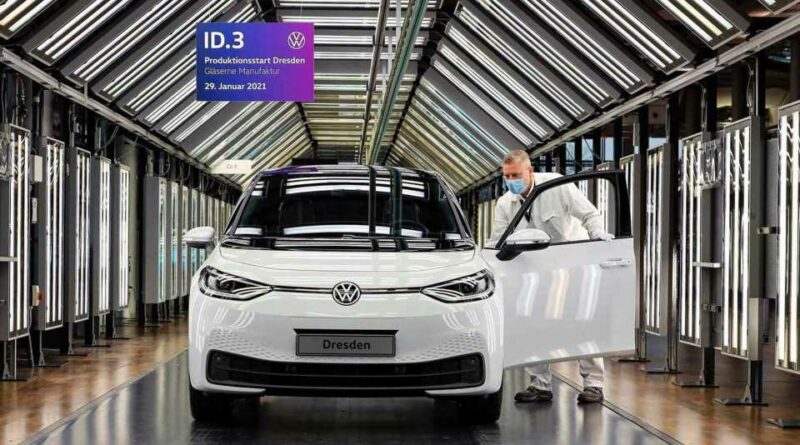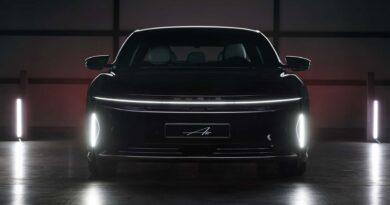VW Said To End ID.3 Production At Dresden's Transparent Factory
Volkswagen Group reportedly plans to stop making ID.3 electric vehicles at its plant in Dresden, Germany.
According to sources cited by Automobilwoche, the decision to end Volkswagen ID.3 production in Dresden is part of a cost-cutting drive by CEO Oliver Blume, although the publication did not say when production will end.
The plant, which opened in 2002 as the Transparent Factory building high-end Volkswagen Phaeton sedans, started building EVs in 2017, when it began making the all-electric Volkswagen e-Golf.
The facility stopped making the e-Golf in late 2020 and began producing its replacement, the ID.3, in 2021. The Dresden plant built 6,500 ID.3 electric hatchbacks in 2022. The site is a very small compared to VW’s other EV plants in Germany – it has no body manufacturing, paint shop or pressing plant.
The Transparent Factory owes its name to the fact it has glass walls allowing customers to watch the final stage of vehicle assembly. It is regarded as an architectural gem and has been used as a venue for events, ceremonies, concerts, and operas.
Gallery: Volkswagen Starts The ID.3 Production At Its Dresden Plant
The facility will continue to operate in some capacity, and its 300 full-time workers will be assigned other tasks, among others in the area of innovative production and testing, the sources said. A VW spokesperson declined to comment on speculation.
It’s worth noting that the ID.3 will continue to be made at the Zwickau plant, which is Volkswagen’s main site in Germany for its ID line of EVs.
Starting this autumn, the ID.3 will also be made at the Wolfsburg plant, “initially only in small numbers,” according to news agency DPA. The decision to stop ID.3 production in Dresden is likely related to the start of production in Wolfsburg.
Volkswagen Group CEO Oliver Blume is looking to increase returns at the VW brand to 6.5 percent for a $10.7 billion (10 billion euros) increase in profit by 2026. The annual operating cost of the Dresden facility is between 60 and 70 million euros. Ending production at the plant would save around 20 million euros a year, a source told Bloomberg.
The news comes after Volkswagen said last week that it is cutting temporary workers at its Zwickau site, its main EV factory in Germany as demand dropped after a phaseout of a subsidy in the country.
In addition, consumers in Europe are affected by higher living costs amid inflation and a surge in interest rates. Volkswagen is also seeing increasing competition from more profitable carmakers such as Stellantis and Tesla, not to mention Chinese carmakers.
Source: Automobilwoche via Bloomberg
Source: Read Full Article




